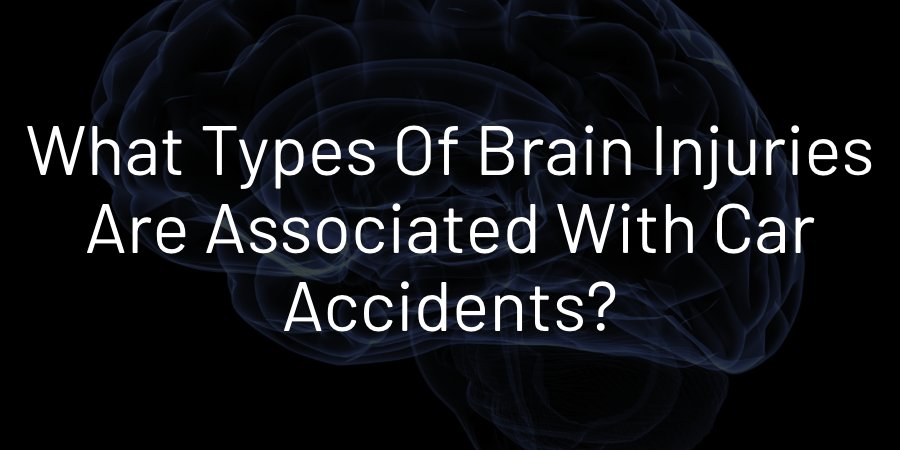
Legally Reviewed By: Robert M. Knowles
Attorney & Partner At Knowles Law Firm
Car accidents are a common cause of injuries that result in hospitalizations and deaths in Nebraska, including brain injuries. Many car accident victims suffer traumatic brain injuries due to the forces involved in the collision, the skull striking objects inside of the vehicle or projectiles penetrating the skull. Even if a victim survives a brain injury, he or she may struggle with long-lasting effects and symptoms. If you or a loved one has been diagnosed with a brain injury after a motor vehicle collision, the Omaha car accident attorneys at Knowles Law Firm can help you pursue justice.

Concussions
Concussions are the most common type of traumatic brain injury. A concussion is an injury from a hit, bump, blow or jolt to the head or skull in a car accident (including impact with an airbag). It is a brain injury due to contact with an object or blunt-force trauma to the skull that causes the brain to move or bounce around, potentially damaging the brain’s cells and tissues. A concussion can affect the way a victim feels, thinks and acts.
Common symptoms of a concussion include:
- Persistent headache
- Dizziness and vertigo
- Nausea or vomiting
- Sensitivity to light and sound
- Learning and cognitive problems
- Memory loss
- Trouble sleeping or insomnia
- Mood, behavior and personality changes
Concussions can be a mild type of brain injury, but there are also moderate to severe concussions. A concussion could cause a temporary loss of consciousness after a car accident, which may last minutes to hours, as well as seizures or convulsions in severe cases. While the symptoms of a concussion typically dissipate on their own within a few weeks, some victims experience post-concussive syndrome, where symptoms can continue for many months or even years.
Contusions and Hematomas
A cerebral contusion is a bruise or bleeding on the surface of the brain. According to the National Library of Medicine, traumatic brain injuries that are associated with cerebral contusions come with an increased risk of disability and death. An intracerebral or subdural hematoma is another type of bleeding brain injury that occurs in the space between the brain and the skull rather than on the surface of the brain itself. Most car accident victims with contusions or hematomas experience a loss of consciousness.
Hydrocephalus (Fluid Buildup)
Post-traumatic hydrocephalus refers to a buildup of fluid that can place pressure on the brain after an accident. Hydrocephalus could follow a traumatic brain injury in a car accident victim if the damage caused to the brain results in the overproduction or excessive accumulation of cerebrospinal fluid in the surrounding space. If not detected and treated promptly, hydrocephalus can increase morbidity and mortality rates after a motor vehicle collision by exerting pressure on the brain.
Edema (Swelling)
Another brain injury that can result in a dangerous buildup of pressure inside of the skull is edema, or swelling. Cerebral edema is an accumulation of fluid in the spaces around the brain, which can increase pressure within the skull and compress the brain’s tissues and blood vessels. In emergency situations, car accident victims may need surgery to open the skull and relieve the pressure. Edema can accompany many types of traumatic brain injuries and can result in nerve damage, confusion and seizures.
Diffuse Axonal Brain Injuries
The brain can sustain injury in other ways in a car accident besides the victim hitting his or her head. One example is a diffuse axonal injury, which typically results from rotational forces being applied to the brain. It can also occur from a rapid forward and backward movement of the head.
When gravitational forces are exerted on the head and skull, the brain may shift or rotate and damage its axons – the connections between the brain’s neurons and cells. In violent car accidents, the axons can stretch and tear, causing a diffuse axonal injury that may lead to irreversible brain damage.
Coup-Contrecoup Brain Injuries
Coup-contrecoup is French for “blow” and “counterblow.” A coup-contrecoup brain injury is particularly dangerous because it technically refers to two brain injuries: one on the side of the brain where an impact was sustained and another on the opposite side, from the brain bouncing off the skull with enough force to result in a counterblow.
The brain floats in cerebral fluid that generally protects it; however, with enough force, a blow could cause the brain to slam against the skull, rebound, and cause a second impact on the opposite side. Coup-contrecoup brain injuries typically affect two regions of the brain, resulting in a wide range of effects.
Hemorrhages
An intracerebral hemorrhage describes bleeding within the skull, which can occur in a car accident if head trauma causes a blood vessel to rupture, tear or get severed. If left untreated, a brain bleed could cause permanent brain damage due to an excessive buildup of pressure within the skull. In severe cases, a brain hemorrhage could cause a stroke, coma, brain death (vegetative state) or death.
Penetrating Brain Injury
If the skull is punctured with an object in a car accident, such as shrapnel, a piece of metal or glass, it may result in a penetrating brain injury. Also known as an open head injury, this describes a break in the skull as well as a projectile piercing the brain. These injuries are most common in high-speed collisions or when an object goes through the windshield in a car accident.
Penetrating brain injuries are severe and require emergency medical care. Surgery may be needed to remove the penetrating object and bone fragments from a skull fracture. Symptoms may include a loss of consciousness, trouble breathing, seizure and coma.
Contact an Attorney if You Suffered a Brain Injury in a Car Accident
If you or a loved one suffered any type of traumatic brain injury in an automobile accident in Omaha, do not hesitate to contact a brain injury lawyer at Knowles Law Firm. We can investigate your car accident to identify its cause. If someone else’s carelessness or recklessness caused the crash, we can help you negotiate a settlement with the responsible party’s insurer or – if necessary – go up against the at-fault party in court to seek maximum financial compensation.A brain injury from a car accident may change your life forever. Pursue the justice and monetary recovery that you need with assistance from an experienced personal injury lawyer. Contact us today for a free case consultation.

About Our Attorney
Robert M. Knowles
Attorney & Partner at Knowles Law Firm
Robert has tried cases in both state and federal courts and was selected as one of the top 100 litigation lawyers in Nebraska for 2014 by the American Society of Legal Advocates. Less than 1.5 percent of lawyers nationally are selected for this recognition. He is rated AV by Martindale-Hubbell which is the highest rating an attorney can obtain. He was also selected by Martindale-Hubbell as a 2019 Top Rated Lawyer.


 Menu
Menu
